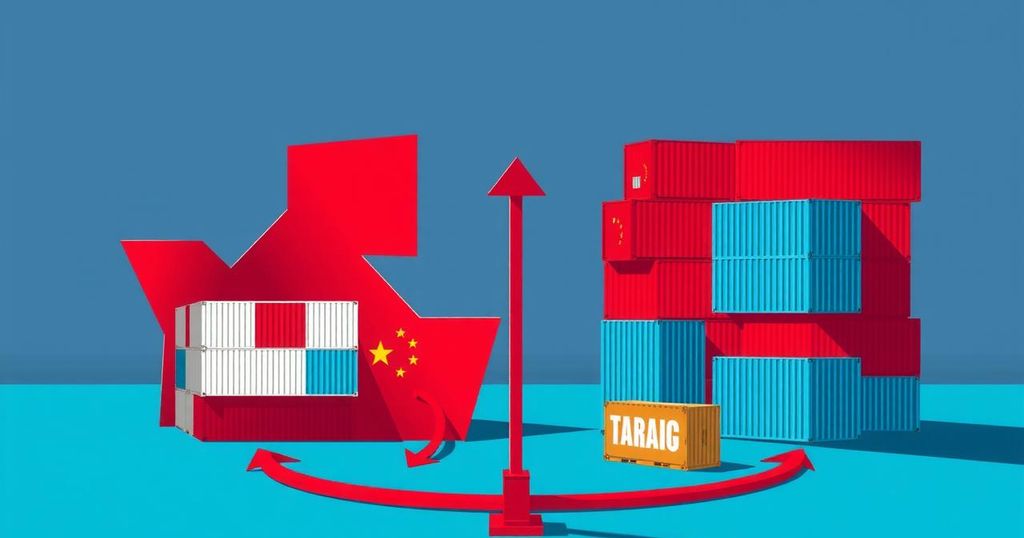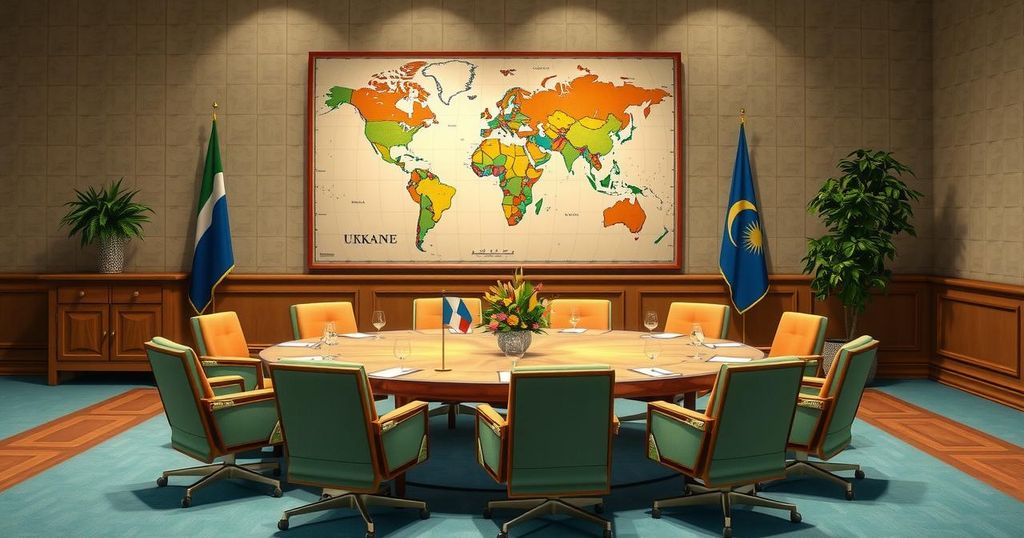Trump Considers Tariff Reductions to Finalize TikTok Sale Deal with China
President Trump is open to reducing tariffs on China to facilitate a sale deal for TikTok, owned by ByteDance, which must find a non-Chinese buyer by April 5 due to national security concerns. The administration prioritizes this sale, with potential tariff negotiations and extensive White House involvement. Concerns around free speech are also noted amid the discussions.
On Wednesday, President Donald Trump indicated a willingness to reduce tariffs on China as a bargaining tactic to facilitate a deal involving TikTok, the popular short video app. The app, owned by ByteDance, must secure a non-Chinese buyer by April 5 or face a potential ban due to national security concerns, as mandated by a 2024 law passed amid worries that ByteDance’s Chinese ownership poses risks for data collection and influence operations by the Chinese government.
Trump expressed a readiness to extend the April 5 deadline should negotiations continue without resolution. He acknowledged the necessity of Chinese approval in finalizing any deal, suggesting, “maybe I’ll give them a little reduction in tariffs or something to get it done.” This statement signals the administration’s prioritization of TikTok’s sale, utilizing tariffs as a negotiation tool with Beijing.
The negotiations surrounding TikTok reflect the challenges of persuading China to relinquish control over such a valuable asset. Past tariff hikes of 20 percent on Chinese imports have been leveraged in discussions regarding TikTok. Trump had warned that tariffs could be imposed if China did not endorse a U.S. deal prior to taking office on January 20.
Vice President JD Vance anticipates that a resolution concerning TikTok’s ownership could materialize by the April deadline. Recent reports suggest investor negotiations led by the White House may focus on increasing stakes in ByteDance to facilitate the purchase of TikTok’s U.S. operations.
Currently, the app used by millions remains under scrutiny due to national security threats associated with its ownership structure. Following a brief suspension in January due to a Supreme Court ruling, TikTok resumed operations as Trump postponed enforcement of the divestment law until April 5, with the possibility of further extension to enable deal completion. The White House’s extensive involvement marks an unprecedented level of engagement in these negotiations.
Concerns about free speech also loom large, with advocates arguing that the proposed ban infringes upon the First Amendment rights of Americans by limiting access to foreign media.
In summary, President Trump is contemplating reducing tariffs on China to expedite the sale of TikTok. The approaching April 5 deadline for ByteDance to divest ownership highlights the tension surrounding national security concerns. The negotiations indicate significant involvement from the White House, with implications for both U.S.-China relations and the future of digital privacy.
Original Source: www.business-standard.com








Post Comment